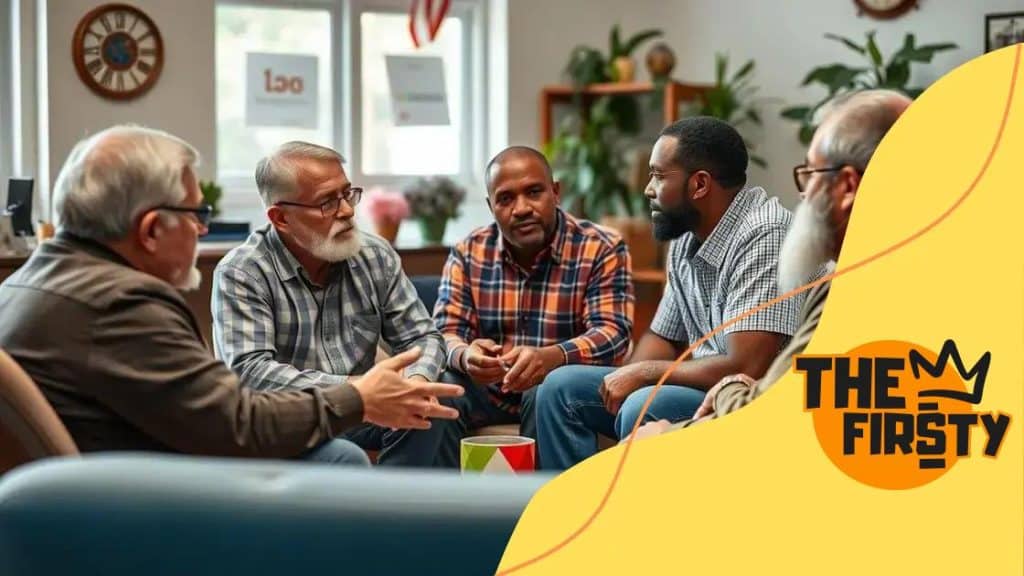The future of government-funded programs for veterans

Anúncios
The future of government-funded programs for veterans will focus on technology integration, holistic care, improved access to services, and increased support for mental health and employment opportunities.
The future of government-funded programs for veterans is an important topic as we seek to support those who have served. Have you ever wondered how these programs will evolve to meet the needs of veterans? In this article, we’ll dive into the latest developments and what they mean for our heroes.
Anúncios
Understanding government-funded programs for veterans
Understanding government-funded programs for veterans is essential for those who have served our country. These programs offer a variety of benefits designed to assist veterans in their transition to civilian life and provide necessary support.
One of the primary goals of these programs is to ensure that veterans receive the financial assistance they need. This includes funding for education, housing, and medical care. Many veterans may not be fully aware of the options available to them, which is why it’s important to explore various programs.
Types of government-funded programs
Government-funded programs for veterans come in many forms. These can include:
Anúncios
- Education benefits: Programs like the GI Bill provide financial support for tuition and other education-related expenses.
- Housing assistance: Many veterans qualify for subsidies or low-interest loans to help with home purchases or rentals.
- Health care services: The Veterans Health Administration offers a wide range of medical services tailored to veterans’ needs.
- Employment support: Various programs help veterans find jobs and transition into the workforce.
In addition to direct financial assistance, these programs often include community resources and support networks. Local organizations frequently partner with government agencies to provide services, ensuring veterans have access to everything they need for a successful transition.
Furthermore, understanding eligibility requirements and application processes is crucial. Some veterans may qualify for multiple programs, which can enhance their overall benefits. Researching these options and consulting with veteran service organizations can provide clarity and guidance.
The impact of these programs on improving the quality of life for veterans cannot be overstated. They play a critical role in helping to rebuild lives and supporting the brave individuals who have served our nation.
Success stories from veterans utilizing these programs
Success stories from veterans utilizing these programs illustrate the profound impact that government-funded assistance can have on their lives. Many veterans have transformed their futures through these valuable resources.
Consider the story of John, a veteran who struggled to find a job after returning home. With the help of job placement services funded by the government, he secured employment in a field he is passionate about. This not only boosted his self-esteem but also provided financial stability for his family.
Real-life examples of success
Several veterans have successfully navigated their transitions thanks to these programs:
- Sarah: After receiving education benefits, she completed a nursing degree and now works at a local hospital, giving back to the community.
- Tom: With housing assistance, he was able to purchase his first home, providing a stable environment for his children.
- Alice: Through mentorship programs, she found a supportive network that helped her start her own business.
These stories are just a few of the many examples showcasing how government-funded programs can change lives. The emotional and social benefits of these programs extend far beyond financial assistance. They foster a sense of community and belonging among veterans.
Veterans report feeling more connected to others and empowered to pursue their dreams after accessing these resources. This sense of support is critical, as many transitioning service members face challenges in adjusting to civilian life.
By sharing these success stories, we hope to inspire more veterans to take advantage of the programs available to them. Each story serves as a beacon of hope, reminding them that they are not alone and that help is accessible.
Challenges facing government funding for veterans

Challenges facing government funding for veterans can significantly impact the resources available to those who have served. Understanding these challenges is crucial for finding solutions to improve support for our veterans.
One major issue is the allocation of funds. Government budgets can shift, leading to fluctuations in financial support. When funds are cut, it directly affects the programs designed to assist veterans. This can mean reduced services or longer wait times for necessary assistance.
Bureaucratic hurdles
Bureaucratic setbacks also play a role in how effectively these programs operate. Many veterans experience delays due to complicated application processes. The need for extensive documentation can discourage some from seeking help.
- Complex procedures: Confusing rules may lead to misunderstandings, causing veterans to miss out on benefits.
- Limited outreach: Not all veterans are informed about the available programs, which diminishes participation.
- Staff shortages: Many agencies struggle with a lack of resources, leading to insufficient support for those in need.
Moreover, there is often a disparity in services offered depending on the location. Veterans in rural areas may have less access to these programs compared to those in urban centers. This can leave many feeling isolated and unsupported.
Advocacy and awareness are vital in addressing these challenges. Organizations dedicated to veterans often work tirelessly to highlight these issues and push for necessary reforms. They seek to ensure that the voices of veterans are heard in government discussions, aiming for a more significant commitment to funding.
Overall, while there are considerable challenges, understanding these barriers is the first step toward improving the system. Awareness can lead to better policies and ultimately enhance the support given to veterans.
Innovations in support for veterans
Innovations in support for veterans are transforming the way veterans receive assistance. These advancements aim to improve the overall experience and make accessing resources easier for those who have served.
One area of innovation is the use of technology. Mobile apps and online platforms allow veterans to connect with services quickly. For example, many applications provide information about benefits and allow users to apply for assistance right from their smartphones.
Telehealth services
Telehealth services have become especially crucial, especially during recent times. Veterans can now consult healthcare professionals from home, overcoming barriers related to transportation and access to care. This convenience ensures that more veterans can receive the treatment they need.
- Access to specialists: Veterans can connect with mental health professionals or specialists without long waiting times.
- Convenience: Appointments can be scheduled at times that work best for the veteran.
- Comfort: Receiving care in familiar surroundings can help veterans feel more at ease.
Another exciting development is the increased focus on mental health support. Organizations are creating programs specifically for veterans that address their unique experiences. These programs often include peer support, where veterans can speak with others who understand their struggles.
Innovative partnerships are also emerging between government agencies, nonprofits, and private companies. Initiatives like job training programs are designed to equip veterans with new skills tailored to the current job market. Through these collaborations, veterans can find fulfilling employment opportunities.
Overall, these innovations provide better support systems and open new avenues for veterans to lead successful, fulfilling lives. By embracing technology and focusing on mental health, society can meet the needs of those who have served more effectively than ever before.
Future trends in veteran assistance programs
The future trends in veteran assistance programs are focused on creating more comprehensive and accessible services for those who have served. As societal needs change, these programs are adapting to better support veterans in various aspects of their lives.
One significant trend is the increasing use of technology to streamline access to services. Online platforms are becoming the norm for applying for benefits, scheduling appointments, and accessing information. Veterans can now use their smartphones or computers to manage their care more efficiently than ever.
Emphasis on holistic care
There is also a growing emphasis on providing holistic care that addresses mental, physical, and emotional health. Programs are looking to integrate services so that veterans receive comprehensive support from multiple angles. This might include combining mental health services with recreational therapy or job training programs.
- Telehealth expansion: More veterans will be able to access mental health care from the comfort of their homes.
- Adaptive programs: Services will be tailored to meet the unique needs of veterans, including women and those from diverse backgrounds.
- Community integration: Programs will increasingly collaborate with local organizations to provide services that veterans need most.
Another trend is the focus on employment opportunities for veterans. As the job market evolves, assistance programs are adjusting to provide skills training that meets current demands. This is vital for helping veterans secure good jobs in emerging industries.
Moreover, there is a trend toward increasing awareness and advocacy efforts. More organizations are working to educate the public on the challenges veterans face, which can lead to increased funding and resources. This advocacy is essential to ensure that veteran programs are prioritized in legislation and policy-making.
As these future trends develop, the goal remains clear: to create a supportive environment where veterans can thrive. By focusing on comprehensive care, technological advancements, and community support, veteran assistance programs can better serve those who have given so much for their country.
FAQ – Common Questions About Government-Funded Programs for Veterans
What types of benefits are available through government-funded programs for veterans?
Veterans can access a range of benefits, including education, housing assistance, healthcare, and employment support.
How can technology improve access to veteran assistance programs?
Technology allows veterans to apply for benefits, schedule appointments, and access resources online, making it easier to receive support.
What are some current trends in supporting veterans today?
Current trends include holistic care approaches, telehealth services, and increased focus on mental health and employment opportunities.
How can veterans find out more about available programs?
Veterans can connect with local veteran service organizations, visit government websites, or utilize mobile apps designed to provide information on available benefits.





